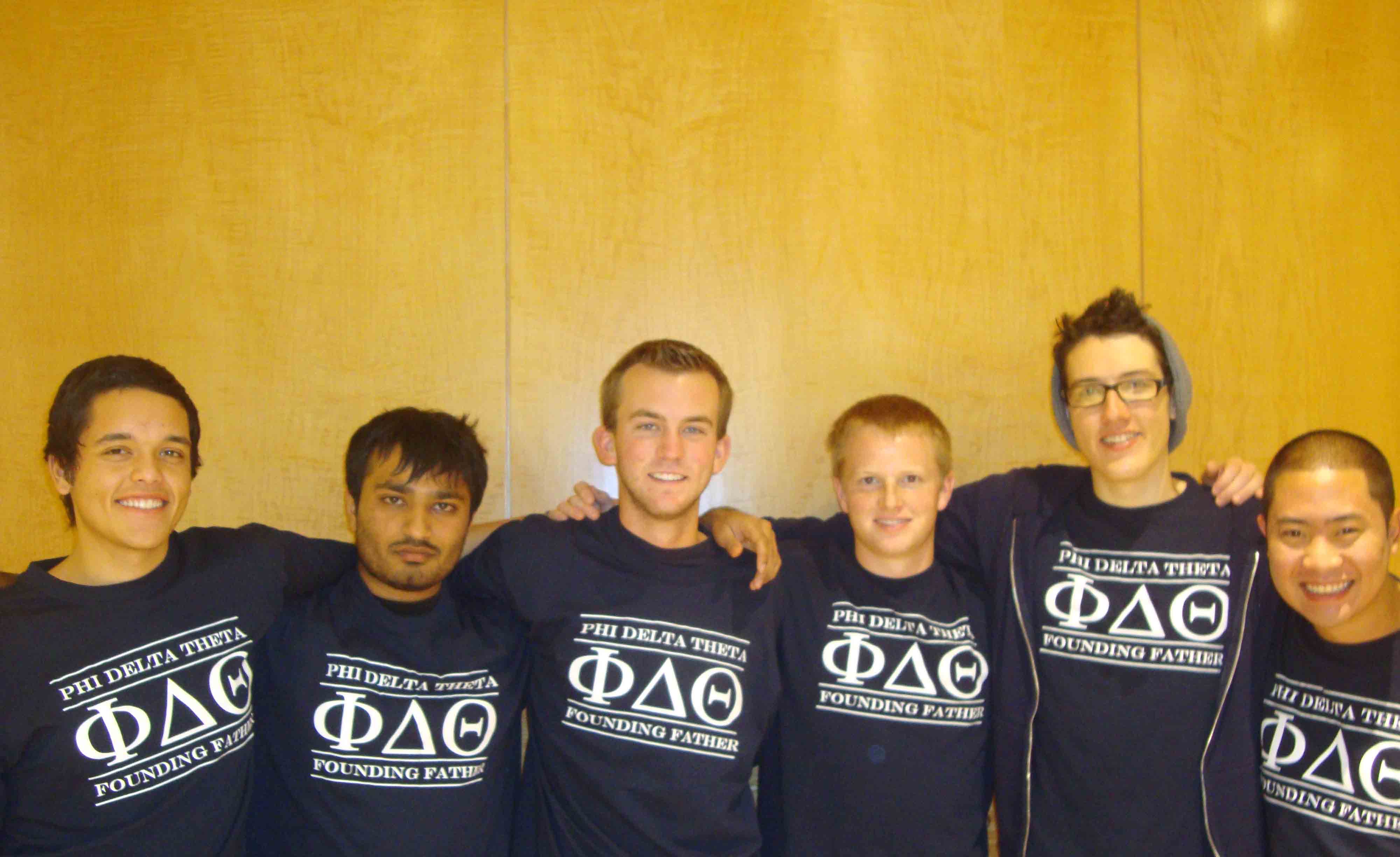In April 2008, Justin Reyes lay in a hospital room, simultaneously awaiting a kidney transplant and running his campaign for student government president of Chabot College.
He won the election, then worked on the Obama campaign that summer and now serves as a state delegate for the Democratic party.
Now Reyes has transferred to UCLA as a third-year political science student, and he boasts a new addition to his list of achievements: founding father of Phi Delta Theta at UCLA.
The fraternity, first brought to campus in 1924 by UCLA founder Edward Dickson, was shut down in 1994 due to dwindling numbers of members and failing chapter operations, said Joe Newland, Phi Delta Theta expansion consultant.
Now the fraternity is returning to UCLA with alcohol-free housing and a strict no-hazing policy, first implemented by the national organization in 1997.
Reyes, who received the first bid from the fraternity in October, said he joined Phi Delta Theta because it offered him the social benefits of a brotherhood without the hassles of an alcohol-based environment.
“I was very attracted to anti-hazing and alcohol-free housing, because I’m a liver and kidney transplant (recipient), and I can’t drink alcohol,” Reyes said.
Recruits like Reyes typify the type of student that the fraternity wants to bring in, Newland said.
“We want to have our group be representative of the campus culture as a whole, not only recruit one certain type of people,” he said. “We try to provide an experience on campus for somebody who maybe looked at a fraternity and said thanks, but no thanks.”
Newland said the fraternity currently has approximately 15 members and will not gain chapter status or housing until next year.
Still, the alcohol-free and no-hazing atmosphere is a large factor in attracting the type of students that he describes.
“I think it’s something that UCLA needs, and once more students find out about that (alcohol-free and no-hazing atmosphere), it’s going to be successful for that organization,” said Greek adviser Troy Bartels.
Although the housing is alcohol-free, Newland said drinking is by no means prohibited. As long as alcohol is distributed legally by a third party vendor, the organization allows it, he said.
Insurance costs also go down as a result of alcohol-free housing, which members said is a small part of the organization’s appeal, although they are more attracted to the ability to shape the fraternity as founding fathers.
“As a founding father, you have the ability to remake the organization in a way that you think it should be done,” said Taylor White, a third-year political science student who has been offered a bid, but has yet to accept.
White, who lives in an apartment surrounded by fraternity houses on Landfair Avenue, said he considered joining a fraternity earlier in the year but was unimpressed with their lack of balance between partying and school.
Derek Syme, a first-year biology student and Phi Delta Theta member, said he appreciates that the fraternity focuses on priorities other than alcohol.
“They still want you to succeed in school, and they’ll help you do that, and the social aspects of it are just a benefit,” Syme said.
